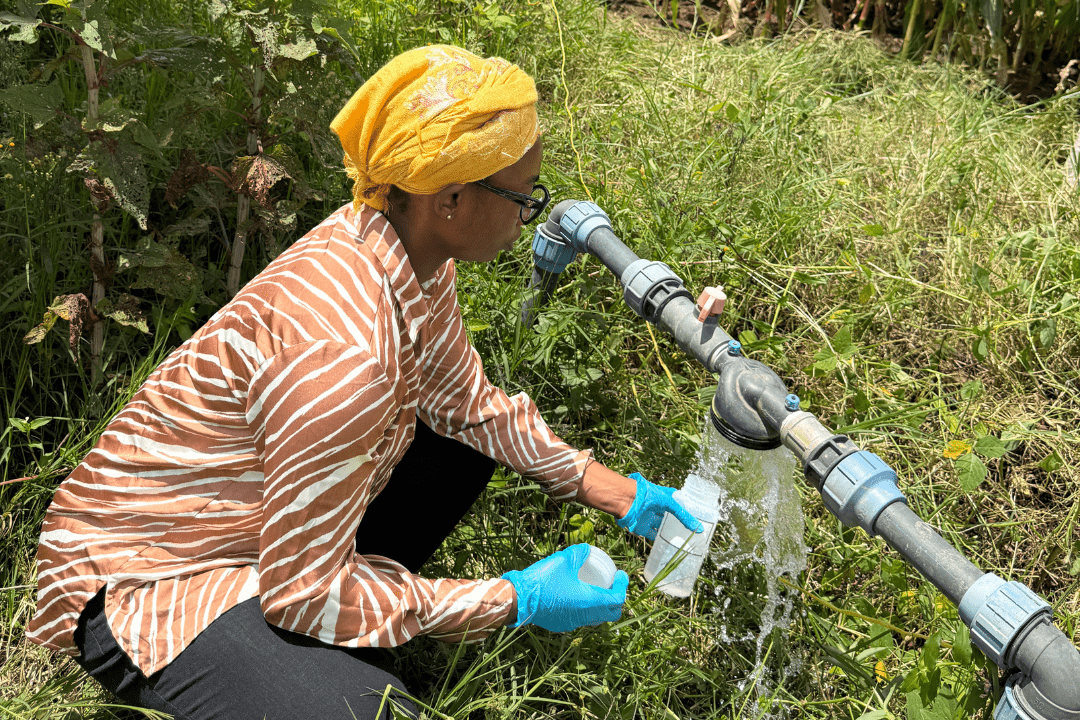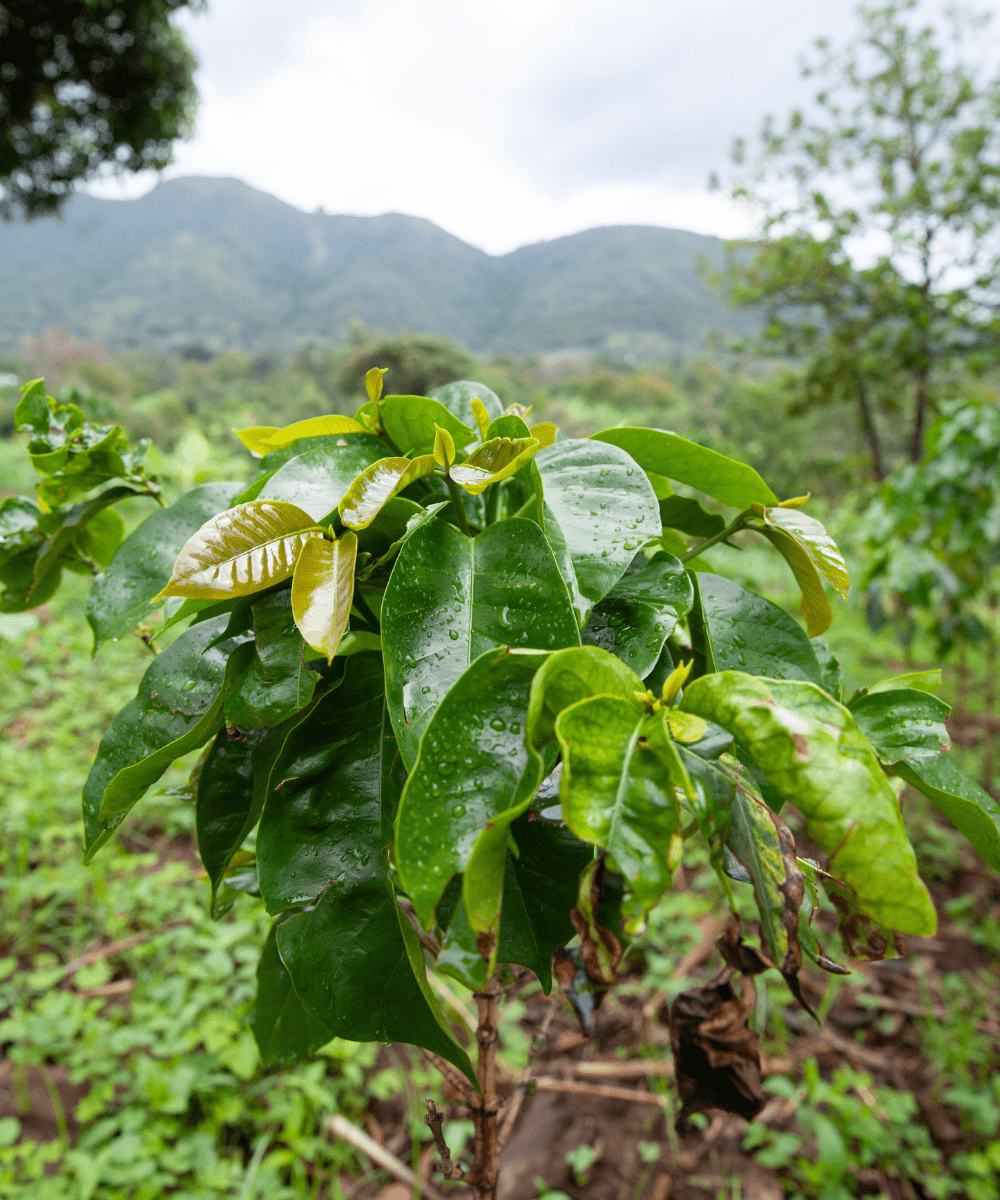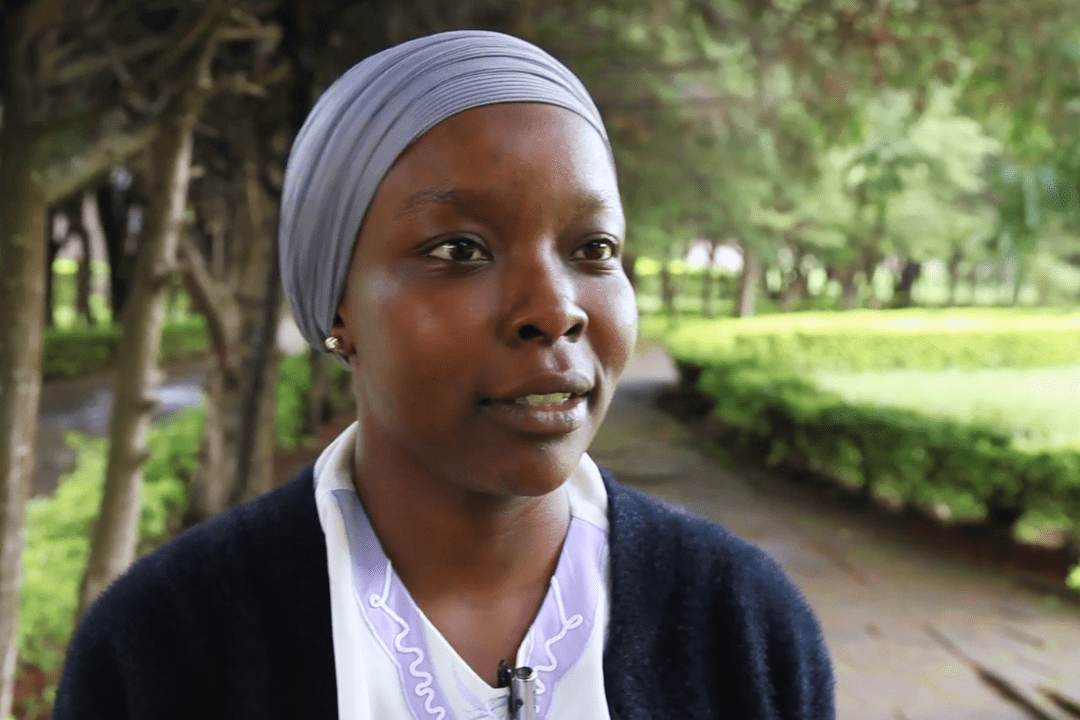
Against the steep blue backdrop of the Mbeya mountain range in Tanzania’s southern highlands, SPH doctoral student Ibiyinka Amokeodo listened to local farmers’ worries about the safety of the water they use on their crops and in their homes. Then she had a lightbulb moment.

At the time, in Spring of 2023, Amokeodo was visiting rural villages in Mbeya to test river water for pollutants and possible harmful microbes such as E. coli (Escherichia coli) bacteria, as part of her dissertation in Global, Environmental, and Occupational (GEOH).
“As I started my PhD, I wanted to be able to merge my interests in food safety and public health together. And being Nigerian, I have always been interested in the global aspect and especially in Africa,” said Amokeodo, of her choice to focus on water quality and to work with UMD’s Global FEWture Alliance.
Flash forward to the announcement of the 2024 Do Good Accelerator Fellowships, awarded to students across UMD who have an idea to create positive change in the world. Amokeodo won a fellowship for AquaSafe, a water quality project rooted in that lightbulb moment in Mbeya. The project supports Tanzanian farmers by providing affordable water testing kits and education for farmers on water quality management, including how to improve crop safety and local public health through monitoring contamination in irrigation water.
“We hope that with the knowledge and test kits, the farmers will be able to better manage their own health and water quality themselves,” said Amokeodo.
We hope with the knowledge and test kits, farmers can better manage their health and water quality themselves.
The Do Good Institute’s accelerator program, which helps test and scale student projects tackling humanity’s grand challenges, chose AquaSafe as one of 19 projects in 2024. Fellows receive $2,000 stipend and coaching and tools to help refine their ideas. Amokeodo was also one of three 2024 Fellows awarded the Gold Public Health Innovation Fellowship, for innovative and impactful public health projects.
Amokeodo is currently in Tanzania conducting research and leading demonstration workshops with farmers. She works closely with students like Moureen Mtema at Mbeya University of Science and Technology (MUST), a university with a strong collaboration with UMD SPH.

“We are assessing three aspects of water quality: microbial, chemical, and physical. And something newer is DNA assessment of water quality, which is really interesting,” said Mtema, whose research focuses on pollutants in agricultural water.
The challenges of implementing the AquaSafe project are many. Farmers are often wary of unfamiliar technologies and of changing age-old farming practices, says Mtema.
Amokeodo and her Tanzanian partners sometimes come up against difficulties sourcing lab supplies locally and must import, which raises costs. And though Amokeodo wants the project to be a sustainable support for farmers in Mbeya and beyond, time and money will limit her.
“My vision is that after I graduate, the AquaSafe project could be incorporated into the Global FEWture Alliance, so that more and more farmers could benefit,” she said.
Graduating in Spring 2026, Amokeodo is looking forward to applying all she has learned at UMD, in Tanzania and from her home country of Nigeria towards a career focused on doing public health good on a global level.
—Fid Thompson